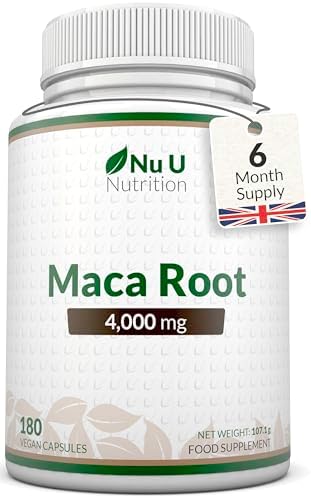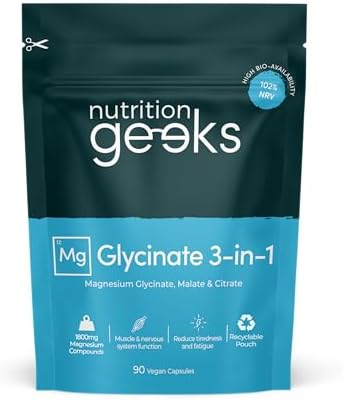We all want to feel energized during the day, sleep better at night, and bounce back more easily from stress. Here, you’ll find simple, natural approaches to boost your energy, improve your sleep routine, and support your body’s ability to recover. From nourishing foods and gentle movement to mindfulness and everyday wellness habits, these blogs are packed with tips to help you feel more balanced and restored.

Discover what works for you — hover over the images below to explore blogs tailored to your interests.




Dive Into the Key Tips

Introduction: Finding Your Energy
In today’s fast-paced world, many adults grapple with the challenge of low energy levels. It is not uncommon to feel drained or lethargic, especially with the demands of work, family, and daily responsibilities weighing heavily on our shoulders. This relentless cycle of fatigue can negatively impact not only our productivity but also our overall well-being. Factors such as stress, poor diet, and lack of physical activity contribute to this pervasive issue, leaving many individuals desperate for solutions.
However, the good news is that transforming your energy levels doesn’t necessarily require drastic changes or reliance on caffeine and stimulants. Small, simple daily habits can dramatically improve how you feel physically and mentally. By incorporating minor adjustments into your routine, it is possible to enhance your vitality and sustain energy throughout the day. Our goal in this blog is to encourage you to embrace these manageable habits, which can be easily integrated into your lifestyle.
As you read further, you will discover five effective habits designed to naturally boost your energy. These strategies focus on optimizing your daily routine, making it easier to shine a light on your vitality without the need for artificial energy boosters. It is essential to recognize that enhancing energy levels is not a one-size-fits-all approach; what works for one person may differ for another. However, by adopting these practices, you might find a renewed sense of energy and motivation.
Let us embark on this journey together, laying the groundwork for a more energized and fulfilling daily life. Change is within reach, and it starts with just a few simple steps.
Habit 1: Start Your Day with Green Tea Extract or Matcha
Incorporating green tea extract or matcha into your morning routine can significantly enhance your energy levels and overall well-being. Both options are well-known for their unique combination of caffeine and antioxidants, which provide a smoother energy boost compared to traditional coffee. Green tea extract contains catechins, which enhance metabolic functions and promote fat oxidation, while matcha, a finely ground powder made from shade-grown green tea leaves, offers a concentrated source of these beneficial compounds.
One key advantage of these alternatives is their ability to improve focus without the jittery side effects often associated with coffee. The presence of L-theanine in matcha helps to promote relaxation, creating a balanced state of alertness that allows for optimal cognitive performance. This unique combination not only fuels physical activity but also sharpens mental clarity, making it an ideal start to the day.
For those looking to incorporate green tea extract or matcha into their daily routine, both options are available in various forms. Green tea extract can be found in easy-to-swallow capsules, making it a convenient choice for individuals on-the-go. Alternatively, matcha is versatile; it can be whisked into hot water or blended into smoothies, lattes, or even baked goods, offering culinary personalization while enhancing your energy levels.
If you are considering adding these healthful ingredients to your daily habits, a variety of products are readily available on platforms like Amazon. Here are some links to popular selections: Green Tea Extract and Organic Matcha Powder. By starting your day with either of these options, you can unlock a sustained form of energy that supports both mental and physical functions throughout the day.
- GREEN TEA – our delicious loose leaf green tea is blended from high quality leaf-and-tip tea, bringing warm grassy aroma…
- TEA ORIGIN – our Green tea is sourced from the ‘Golden Triangle’ in China’s renown tea gardens in the Yellow Mountains. …
- GARDEN FRESH – each harvest of our Green tea is garden fresh sealed to best preserve the flavour and aroma, ready for wh…
Habit 2: Prioritize Quality Sleep Every Night
Sleep is a fundamental component of overall health and well-being, playing a pivotal role in restoring energy levels. Ensuring that you receive quality sleep each night is essential for maintaining optimal physical and mental performance. It is during these restful hours that the body undergoes crucial restorative processes, which include repairing tissues, consolidating memories, and regulating hormones that influence energy levels throughout the day.
To enhance the quality of your sleep, establishing a consistent sleep hygiene routine is advisable. This involves creating a conducive sleep environment and implementing habits that promote relaxation. Consider adopting a regular schedule by going to bed and waking up at the same time each day, even on weekends. This consistency helps regulate the body’s internal clock, which can lead to more restorative sleep.
Moreover, the bedroom should be optimized for rest. This can be achieved by keeping the room dark, quiet, and cool. Investing in a comfortable mattress and pillows also contributes significantly to a restful night’s sleep. It is recommended to limit exposure to screens before bedtime, as blue light emitted by phones and computers can interfere with the body’s ability to produce melatonin, a hormone essential for sleep.
Additionally, incorporating nutritional support such as vitamin B12 can benefit both energy levels and sleep quality. B12 is crucial for nerve function and the formation of red blood cells, which transport oxygen throughout the body, thus boosting overall energy. Including foods rich in B12—like fish, meat, dairy products, and fortified cereals—can be a part of a balanced diet. For those who struggle to obtain enough B12 through dietary means, supplements may also be considered. However, consulting with a healthcare professional before starting any new supplement is advisable.
By prioritizing quality sleep through these practices, individuals can experience significant improvements in their energy levels and overall well-being.
- REFRESHING LEMON FLAVOUR: WeightWorld’s Chewable Vitamin B12 Tablets come in a refreshing lemon flavour with a soft, che…
- 400 CHEWABLE TABLETS (1+ YEAR SUPPLY): Each serving provides 1000mcg of Vitamin B12 in the form of Methylcobalamin, the …
- FOR LIFE ON THE GO: Keep the momentum going with Methylcobalamin B12 Tablets. Vitamin B12 contributes to the reduction o…
Habit 3: Stay Hydrated Throughout the Day
Maintaining adequate hydration is essential for sustaining energy levels throughout the day. Dehydration can lead to significant drops in physical and cognitive performance, resulting in feelings of fatigue and reduced concentration. Research indicates that even mild dehydration can impact mood and alertness, making it crucial to prioritize fluid intake.
The recommended daily water intake can vary based on factors like age, gender, activity level, and climate. Generally, health authorities suggest aiming for around 2.7 liters (91 ounces) for women and 3.7 liters (125 ounces) for men. However, adhering strictly to these figures may not be necessary for everyone. Listening to one’s body and observing thirst cues is an equally vital aspect of effective hydration.
In addition to plain water, incorporating other hydrating beverages, such as herbal teas, can diversify fluid intake while providing additional health benefits. Herbal teas, like chamomile or peppermint, not only assist in hydration but also offer calming or digestive health properties, contributing to overall well-being. It is advisable to minimize the consumption of drinks that can lead to dehydration, such as those high in caffeine or sugar.
To enhance hydration habits, individuals can adopt specific strategies. Carrying a reusable water bottle can serve as a constant reminder to drink throughout the day. Setting regular intervals for water breaks, especially during work or physical activity, can also encourage consistent fluid intake. Incorporating hydrating foods, such as fruits and vegetables, is another effective method to increase overall water consumption. Foods like watermelon, cucumber, and oranges provide hydration while adding essential nutrients to the diet.
Overall, making simple adjustments to hydration practices can lead to noticeable improvements in energy levels and cognitive function. Staying mindful of hydration not only supports physical performance but also promotes a healthier lifestyle.
Habit 4: Incorporate Regular Movement or Exercise
Physical activity plays a crucial role in transforming energy levels. Engaging in regular movement, whether through structured exercise or simple activities like walking and stretching, has been shown to significantly improve energy and overall vitality. The science behind this transformation lies in the release of endorphins and the enhancement of blood circulation, both of which are stimulated by even brief periods of physical activity.
When you engage in movement, your body responds by releasing endorphins, often referred to as “feel-good” hormones. These biochemicals promote an improved mood, reduce stress, and alleviate feelings of fatigue. The exhilarating effect produced by endorphins can lead to a noticeable increase in energy that not only elevates your physical state but also positively impacts mental clarity and motivation.
Moreover, regular movement contributes to better circulation, which is essential for delivering oxygen and nutrients to your body’s tissues. Improved blood flow ensures that energy levels are maintained throughout the day, reducing the likelihood of experiencing sluggishness. Incorporating just a few minutes of activity, such as a brisk walk during a break or stretching while at your desk, can lead to profound benefits in how you feel.
To effectively integrate movement into your daily routine, consider setting small, achievable goals. This could involve taking the stairs instead of the elevator, opting for walking meetings, or scheduling short stretching sessions throughout the day. By making movement a priority, you can enhance your energy levels and overall sense of well-being. Developing a habit of regular movement does not have to be overwhelming; rather, it should be viewed as a gradual process that promotes sustained vitality, ensuring you feel invigorated for the tasks ahead.
Habit 5: Eat Energy-Boosting Nutrient-Rich Foods
Eating nutrient-rich foods is key to keeping your energy high all day. Foods rich in B vitamins, iron, and antioxidants help your body produce and maintain energy.
B vitamins are essential for turning carbs into usable energy. Good sources include whole grains, lean meats, eggs, legumes, and leafy greens.
Iron helps carry oxygen in your blood, so low iron can cause fatigue. Eat iron-rich foods like spinach, red meat, lentils, and fortified cereals. Pair them with vitamin C foods like citrus to boost iron absorption.
Antioxidants fight fatigue by reducing oxidative stress. Berries, nuts, seeds, and colourful veggies are great antioxidant sources.
If your diet lacks these nutrients, supplements like B12 can help—especially for vegetarians and vegans. Focusing on healthy foods and key nutrients can boost your energy and keep you feeling vibrant throughout the day.
Conclusion: Embarking on Your Energy Transformation
We’ve covered five simple daily habits that can boost your energy: regular exercise, a nutrient-rich diet, staying hydrated, getting quality sleep, and practicing mindfulness. These easy changes can make a big difference in how energized you feel every day.
Start small—try adding short workouts or healthier meals to your routine. Drink plenty of water and set a consistent bedtime to improve sleep. Mindfulness exercises like meditation or deep breathing can also help you stay balanced and energized.
Consistency is key. Pick one or two habits that fit your lifestyle and build from there. Over time, these habits will become natural and improve your energy and overall health.
To support your journey, consider natural supplements like green tea extract, matcha powder, or B12. You can find quality options through the Amazon affiliate links below to make boosting your energy even easier.

Understanding Adaptogens
In today’s fast-paced world, finding ways to manage stress and enhance energy levels is essential. Adaptogens, a special class of herbs and plants, have gained popularity for their ability to help the body adapt to stress. In this blog, we will explore the top ten adaptogens that can not only alleviate stress but also boost your energy naturally.
1. Ashwagandha
Ashwagandha, also known as Withania somnifera, is one of the most researched adaptogens. It works wonders for anxiety relief and has impressive ashwagandha benefits, including improving energy levels. This herb helps regulate cortisol, the stress hormone, enabling better emotional balance.
2. Rhodiola Rosea
Rhodiola is another powerful adaptogen, celebrated for its ability to combat fatigue and enhance stamina. It has been shown to reduce stress, improve concentration, and promote a more resilient mental state. Ideal for those facing demanding schedules, it’s a natural energy booster that works effectively.
3. Holy Basil
This revered herb not only reduces stress but also fortifies the immune system. Holy Basil helps the body respond to various stressors, making it a remarkable choice for anyone looking to enhance their overall wellbeing.
4. Ginseng
Known as a classic energy booster, Ginseng provides a natural method for increasing physical and mental performance. Its adaptogenic properties help minimize fatigue, making it a favorite among those who need that extra push in their day.
5. Maca Root
Maca, a root vegetable from Peru, is known for its ability to enhance energy levels and decrease stress. With its nutritional profile rich in vitamins and minerals, Maca is a fantastic addition to your daily routine.
Explore the remaining five adaptogens like Eleuthero, Schisandra, and more, and transform your approach to stress management and energy enhancement. Embrace natural adaptogens to achieve a stress-free, energetic lifestyle!

Evening Rituals That Promote Deep, Restful Sleep
Getting a good night’s rest is one of the most important things you can do for your health. Sleep supports memory, mood, focus, and even your immune system. Yet, so many of us struggle to switch off at night. The good news? By building a simple evening routine, you can create the perfect conditions for deep, restful sleep.
Below are some trusted rituals you can start tonight—plus a few helpful tools that make winding down even easier.
Create a Calm Evening Environment
The space around you has a big impact on how well you sleep. Bright overhead lighting tells your brain it’s still daytime, which keeps melatonin levels low. Instead, try dimming the lights an hour before bed. A warm-glow lamp or a diffuser with calming essential oils can instantly set a more relaxing mood.
Lavender and chamomile are especially known for their sleep-promoting properties. One study found that lavender oil may help reduce heart rate and blood pressure, making it easier to drift off. I personally use this aromatherapy diffuser in the evenings—it turns my bedroom into a little spa retreat.
Unplug From Screens Before Bed
We all know scrolling through social media at midnight isn’t the best idea. The blue light from phones, laptops, and TVs interferes with melatonin production, making it harder to fall asleep.
If going screen-free feels unrealistic, start with small steps. Try blue light glasses earlier in the evening. They filter out the stimulating light so your brain can start winding down naturally. These blue light glasses have been a game-changer for me, especially on nights when I work late.
Even better, set yourself a cut-off time. Reading a book or listening to calming music is a gentle way to transition away from screens while still keeping your mind engaged.
Comfort Is Key to Restful Sleep
Your body needs to feel safe and supported to truly relax. That’s why investing in comfort can make such a difference. A supportive pillow helps keep your spine aligned, while a weighted blanket can add a sense of calm.
Research shows that weighted blankets may reduce cortisol (the stress hormone) while increasing melatonin. In simple terms: they help you feel calmer and sleepier. If you’ve never tried one, this weighted blanket is worth a look—it feels like a gentle hug.
Build a Gentle Night Routine
Consistency is one of the strongest signals you can give your body. By repeating the same bedtime habits, your brain learns it’s time to switch from “day mode” to “sleep mode.”
Your routine doesn’t need to be complicated. A few minutes of stretching, sipping a caffeine-free tea, or reading a chapter of a book can all work. Even something simple like setting a desk timer during the evening helps you step away from work on time. I use this minimalist desk timer to remind myself when it’s time to switch off.
Over time, these small rituals create a powerful sleep signal that makes drifting off effortless.
Start Small, Sleep Better
Better sleep doesn’t happen overnight (pun intended). The key is to start with one or two changes and build from there. Maybe tonight you dim the lights earlier, and tomorrow you try reading instead of scrolling.
With the right environment, the right tools, and a little consistency, you’ll notice how much easier it becomes to fall asleep—and stay asleep. Deep, restful sleep isn’t just about feeling rested in the morning. It’s about giving your body and mind the chance to truly heal, reset, and prepare for the day ahead.
You deserve that kind of rest.

How to Improve Sleep Quality Naturally Without Pills: Your Complete Guide to Better Rest
Picture this: you’ve just spent another night staring at the ceiling, watching the hours tick by. Sound familiar? You’re definitely not alone. Millions of people struggle with sleep issues, yet many hesitate to reach for prescription medications due to potential side effects or dependency concerns.
The good news? Nature offers incredible solutions that can transform your sleep without a single pill. Let’s dive into proven, natural methods that actually work.
Why Natural Sleep Solutions Beat Pills Every Time
Your body naturally produces sleep-promoting chemicals like melatonin and adenosine. However, modern life constantly disrupts these processes. Artificial lights, stress, and poor habits throw your internal clock completely off balance.
Pills might seem like quick fixes, but they often create more problems. They can cause grogginess, dependency, and disrupt your natural sleep cycles. Furthermore, they don’t address the root causes of your sleep troubles.
Natural approaches work differently. They support your body’s existing systems rather than overriding them. This creates lasting improvements that get better over time.
Transform Your Sleep Environment Into a Sanctuary
Your bedroom environment plays a massive role in sleep quality. Think of it as your personal sleep laboratory where every detail matters.
Temperature control comes first. Your body naturally drops its temperature when preparing for sleep. Keep your room between 60-67°F (15-19°C) for optimal comfort. A cooling mattress pad or breathable bedding can make an enormous difference here.
Darkness signals your brain to produce melatonin. Even tiny amounts of light can disrupt this process. Blackout curtains create the perfect cave-like atmosphere your body craves. Additionally, covering LED lights on electronics eliminates those sneaky sleep disruptors.
Sound management requires attention too. Consistent white noise masks sudden sounds that might wake you. A quality sound machine or fan provides steady background noise that promotes deeper sleep.
Your mattress and pillows deserve special consideration. They directly impact your comfort and spinal alignment throughout the night. An ergonomic pillow that supports your neck’s natural curve can eliminate morning stiffness and improve sleep quality dramatically.
Master Your Pre-Sleep Routine for Consistent Results
Your evening routine sends powerful signals to your brain about bedtime. Start this routine at the same time every night, regardless of when you actually plan to sleep.
Begin by dimming lights throughout your home about two hours before bed. This gradual transition mimics natural sunset patterns. Next, engage in relaxing activities that calm your mind. Reading, gentle stretching, or listening to soft music all work wonderfully.
Technology creates significant sleep disruptions. Blue light from screens suppresses melatonin production for hours. Therefore, establish a digital sunset at least one hour before bed. Put devices in another room to avoid temptation.
A warm bath or shower raises your body temperature temporarily. When you cool down afterward, it triggers sleepiness naturally. Adding Epsom salts provides additional muscle relaxation benefits.
Progressive muscle relaxation techniques release physical tension accumulated throughout the day. Start with your toes and work upward, tensing and releasing each muscle group. This simple practice often leads people into deep, restful sleep.
Harness the Power of Natural Sleep-Promoting Foods
What you eat dramatically affects how well you sleep. Certain foods contain compounds that naturally promote relaxation and sleepiness.
Tart cherries contain natural melatonin. Studies show that drinking tart cherry juice increases sleep time and quality. Similarly, almonds provide magnesium, which helps muscles relax and promotes steady sleep patterns.
Chamomile tea has been used for centuries as a natural sleep aid. Its compounds bind to brain receptors that promote sleepiness. Drinking a warm cup about 30 minutes before bed creates a soothing ritual that signals bedtime.
Complex carbohydrates like oatmeal help your brain produce serotonin, which converts to melatonin. A small bedtime snack combining protein and carbs can actually improve sleep quality.
However, timing matters crucially. Stop eating large meals at least three hours before bed. Your digestive system needs time to settle down before sleep begins.
Exercise Your Way to Better Sleep
Regular physical activity improves sleep quality in multiple ways. It reduces stress hormones, increases deep sleep phases, and helps regulate your circadian rhythm.
Morning or afternoon exercise works best for sleep. Vigorous evening workouts can actually energize you when you need to wind down. Instead, opt for gentle yoga or stretching in the evening.
Even light activities make a difference. A 10-minute walk after dinner can improve your sleep that same night. Consistency matters more than intensity when it comes to sleep benefits.
Strength training provides particularly impressive sleep improvements. It reduces anxiety and increases the amount of deep sleep you experience. A simple resistance band routine can deliver these benefits without requiring gym access.
Manage Stress and Anxiety Naturally
Stress is sleep’s biggest enemy. Racing thoughts and worry keep your mind active when it should be shutting down. Fortunately, natural stress management techniques can break this cycle.
Deep breathing exercises activate your parasympathetic nervous system. This triggers your body’s relaxation response within minutes. Try the 4-7-8 breathing technique: inhale for 4 counts, hold for 7, and exhale for 8.
Journaling before bed clears your mind of worries and to-do items. Write down three things you’re grateful for and any concerns you have. This practice literally removes thoughts from your head and puts them on paper.
Meditation doesn’t require years of practice to be effective. Even five minutes of mindfulness can calm a busy mind. Guided meditation apps make this practice accessible for beginners.
Essential oils like lavender have scientifically proven calming effects. A diffuser in your bedroom or a few drops on your pillow can promote relaxation. Alternatively, a pillow spray with natural sleep-promoting scents creates an instant relaxation cue.
Optimize Your Circadian Rhythm with Light Exposure
Your internal body clock responds directly to light patterns. By managing light exposure strategically, you can reset and strengthen your natural sleep-wake cycle.
Morning sunlight exposure is incredibly powerful. Step outside within 30 minutes of waking, even on cloudy days. This bright light signals your brain to stop producing melatonin and increases alertness.
A light therapy lamp can provide similar benefits if you wake before sunrise or live in areas with limited daylight. Using it for 20-30 minutes during your morning routine helps regulate your sleep schedule.
Throughout the day, seek natural light whenever possible. Work near windows, take outdoor breaks, and keep curtains open. This consistent light exposure strengthens your circadian rhythm’s natural patterns.
As evening approaches, gradually reduce light exposure. Use lamps instead of overhead lights, and choose warm-coloured bulbs over cool white ones. This creates a natural transition toward sleep time.
Create Consistency That Your Body Can Count On
Your body thrives on predictable patterns. A consistent sleep schedule strengthens your natural circadian rhythm and makes falling asleep much easier.
Go to bed and wake up at the same time every day, including weekends. This might feel restrictive initially, but your body will thank you with improved sleep quality and daytime energy.
If you must adjust your schedule, do it gradually. Shift your bedtime by 15-30 minutes per night rather than making dramatic changes. This gentler approach prevents disrupting your established rhythm.
Morning routines are equally important. They signal the start of your active day and help maintain your sleep-wake cycle. Include activities that energize you naturally, like stretching, drinking water, or stepping outside.
Track Your Progress and Adjust Accordingly
Monitoring your sleep improvements helps you identify which strategies work best for your unique situation. Keep a simple sleep journal noting when you go to bed, how long it takes to fall asleep, and how you feel in the morning.
Pay attention to factors that affect your sleep quality. Did that afternoon coffee keep you awake? Does your weekend routine disrupt Monday’s sleep? These patterns reveal important insights.
A sleep tracking device or smartphone app can provide objective data about your sleep patterns. However, don’t become obsessed with the numbers. How you feel matters more than perfect statistics.
Celebrate small improvements rather than expecting overnight transformations. Better sleep develops gradually as you consistently apply these natural strategies.
- EVERYTHING YOU NEED IS INCLUDED: Your WHOOP purchase includes a 12-month WHOOP Peak membership, a WHOOP 5.0 device, a Su…
- CONTINUOUS MONITORING: WHOOP monitors your most important metrics, including sleep, heart rate, blood oxygen, stress, me…
- A HOLISTIC VIEW OF YOUR HEALTH: Understand your baseline vitals like heart rate and skin temperature with Health Monitor…
Your Journey to Natural, Restful Sleep Starts Tonight
Improving sleep quality naturally requires patience and consistency, but the results are truly life-changing. Unlike pills, these methods address the root causes of sleep problems and create lasting improvements.
Start with one or two strategies that resonate most with you. Perhaps it’s creating a better sleep environment or establishing a calming bedtime routine. Once these become habits, gradually add other techniques.
Remember, your body wants to sleep well naturally. These strategies simply remove the obstacles and support your innate ability to rest deeply. With time and consistency, you’ll discover the rejuvenating sleep you’ve been searching for.
Quality sleep isn’t a luxury—it’s essential for your health, happiness, and daily performance. By choosing natural approaches over pills, you’re investing in sustainable, long-term sleep improvements that will serve you for years to come.

The Hidden Hero: How Magnesium Transforms Your Energy, Mood, and Sleep
Picture this: you wake up exhausted despite eight hours in bed, drag yourself through another sluggish afternoon, and find your mind racing when you finally try to sleep. Sound familiar? Before you blame stress or aging, consider this – you might be overlooking one crucial mineral that could change everything.
Magnesium quietly powers over 300 biochemical reactions in your body. Yet most people don’t get enough of this essential nutrient. Let’s explore how magnesium becomes your secret weapon for better energy, stable moods, and restorative sleep.
Why Your Body Craves Magnesium More Than You Realize
Modern life depletes magnesium faster than ever before. Processed foods contain minimal amounts, while stress, caffeine, and certain medications actively drain your stores. Meanwhile, your muscles, nerves, and brain desperately need this mineral to function properly.
Think of magnesium as your body’s master regulator. Without adequate levels, your cellular energy production slows down, your nervous system becomes overactive, and your sleep-wake cycle gets disrupted. This creates a frustrating cycle where you feel tired but wired.
The good news? Addressing magnesium deficiency often delivers noticeable improvements within days. Many people report feeling more energized, calmer, and sleeping better once they optimize their magnesium intake through [high-quality supplements].
Magnesium: Your Natural Energy Booster
Forget expensive energy drinks loaded with caffeine and sugar. Real, sustained energy comes from your mitochondria – the powerhouses inside your cells. Magnesium activates the enzymes that convert food into ATP, your body’s primary energy currency.
When magnesium levels drop, this energy production process becomes inefficient. You might eat well and get adequate sleep, but still feel like you’re running on empty. This explains why some people experience dramatic energy improvements after starting [magnesium supplementation].
Additionally, magnesium helps regulate blood sugar levels, preventing those energy crashes that leave you reaching for another cup of coffee. Instead of riding the caffeine rollercoaster, you maintain steady energy throughout the day.
How Magnesium Stabilizes Your Mood Naturally
Ever notice how stress makes you crave chocolate? Your body instinctively seeks magnesium, which chocolate contains in modest amounts. However, there’s a more effective way to support your mood stability.
Magnesium calms your nervous system by regulating neurotransmitters like GABA, which promotes relaxation and reduces anxiety. It also helps control cortisol, your primary stress hormone. When these systems work harmoniously, you feel more resilient and emotionally balanced.
Research shows that people with adequate magnesium levels report less irritability, better stress tolerance, and improved overall mood. If you’ve been struggling with anxiety or feeling overwhelmed, [targeted magnesium products] might provide the support you need.
Furthermore, magnesium supports healthy brain function by protecting neurons from overstimulation. This means clearer thinking, better focus, and less mental fatigue throughout your day.
The Sleep Connection: Why Magnesium Beats Melatonin
Sleep troubles affect millions of people, but most solutions only address symptoms rather than root causes. Magnesium takes a different approach by naturally preparing your body for deep, restorative sleep.
This remarkable mineral activates your parasympathetic nervous system – your body’s “rest and digest” mode. It also helps regulate melatonin production and maintains healthy GABA levels, both crucial for quality sleep. Unlike sleep medications that can leave you groggy, magnesium promotes natural sleep patterns.
Many people discover that [magnesium supplements designed for nighttime use] help them fall asleep faster and wake up feeling refreshed. The key lies in choosing the right form and timing your intake properly.
Moreover, magnesium reduces muscle tension and cramps that can disrupt sleep. If you’ve ever been jolted awake by restless legs or muscle spasms, magnesium supplementation might be your solution.
Choosing the Right Magnesium for Your Needs
Not all magnesium supplements work equally well. The form you choose significantly impacts absorption and effectiveness. Magnesium oxide, commonly found in drugstores, has poor bioavailability and often causes digestive upset.
Better options include magnesium glycinate for sleep and relaxation, magnesium citrate for energy and regularity, or magnesium malate for muscle function and energy production. [Premium magnesium formulas] often combine multiple forms to maximize benefits.
Timing matters too. Taking magnesium with meals improves absorption and reduces stomach irritation. For sleep benefits, take it 30-60 minutes before bedtime. Start with smaller doses and gradually increase to find your optimal amount.
Signs You’re Getting Enough Magnesium
How do you know if magnesium is working? Pay attention to these positive changes: steadier energy levels throughout the day, falling asleep more easily, waking up refreshed, better stress tolerance, and reduced muscle tension.
You might also notice improved exercise recovery, fewer headaches, and better focus. These benefits typically develop gradually over several weeks of consistent use.
If you don’t experience improvements after a month of [quality magnesium supplementation], consider checking with a healthcare provider about other potential factors affecting your energy, mood, or sleep.
Simple Ways to Maximize Magnesium Benefits
Combine magnesium supplementation with magnesium-rich foods like leafy greens, nuts, seeds, and dark chocolate for best results. Reduce magnesium-depleting factors like excessive caffeine, alcohol, and processed sugar when possible.
Create a relaxing bedtime routine that includes your magnesium supplement along with other sleep-promoting habits like dimming lights and avoiding screens. This amplifies magnesium’s natural sleep benefits.
Stay consistent with your supplementation schedule. Magnesium works best when maintained at optimal levels rather than taken sporadically. [Convenient magnesium products] make it easier to stick with your routine.
Your Next Step Toward Better Health
Magnesium deficiency affects up to 80% of adults, yet it remains one of the most overlooked health issues. If you’re struggling with low energy, mood challenges, or poor sleep, magnesium supplementation offers a natural, science-backed solution.
The transformation doesn’t happen overnight, but most people notice positive changes within the first week. Better sleep leads to improved energy, which supports stable moods – creating an upward spiral of wellness.
Ready to experience what balanced magnesium levels can do for you? [Start with a high-quality magnesium supplement] and give your body the support it’s been craving. Your future self will thank you for taking this simple but powerful step toward optimal health.
A selection of the best, handpicked by The Daily Reset team below.
























Pingback: Hot Topics & Specialist Guides in Health and Wellness - The Daily Reset